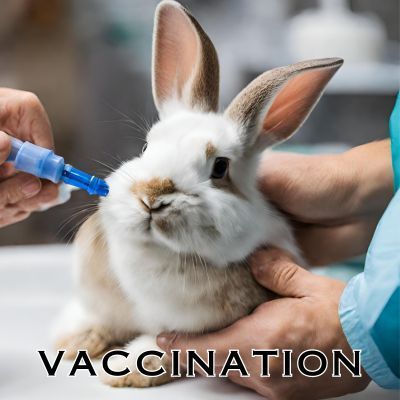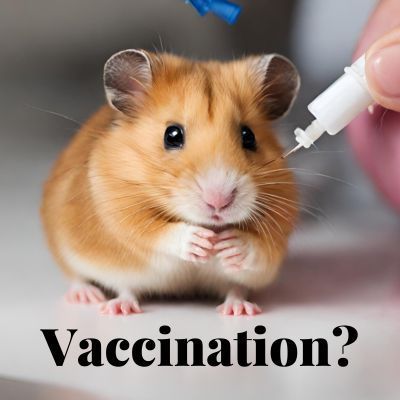Q&A Day - Dental problems in dogs
What are the signs of dental problems in dogs
Q: What are the signs of dental problems in dogs?
A: Dental issues in dogs can go beyond bad breath. Watch out for signs that may indicate problems with your furry friend's oral health.
Q: Is bad breath the only sign of dental problems in dogs?
A: No, bad breath is common, but other signs include difficulty eating, pawing at the mouth, bleeding gums, tartar buildup, and changes in behavior like increased irritability.
Q: How can I check my dog's teeth at home?
A: Lift your dog's lips and examine the teeth and gums. Look for discoloration, swelling, or any abnormalities. A healthy mouth should have clean teeth and firm, pink gums.
Q: Are certain dog breeds more prone to dental issues?
A: Yes, small breeds are often more susceptible due to crowded teeth, but dental problems can affect any dog. Regular dental care is essential for all breeds.
Q: What role does diet play in canine dental health?
A: Chewing on dental treats or toys and eating a diet that promotes oral health can help reduce tartar buildup. Consult your vet for suitable dental care options.
Q: Can dental problems in dogs lead to other health issues?
A: Yes, untreated dental issues can impact overall health, potentially leading to infections that may affect the heart, kidneys, or liver. Regular dental care is crucial for your dog's well-being.
Q: How often should I schedule professional dental cleanings for my dog?
A: The frequency depends on the individual dog, but annual dental check-ups are recommended. Your vet can advise on the appropriate schedule based on your dog's oral health.
Q: Are there home care practices to promote dental health?
A: Yes, brushing your dog's teeth regularly with canine toothpaste, providing dental chews or toys, and incorporating dental-friendly diets can contribute to good oral hygiene.
Q: What should I do if I notice signs of dental problems in my dog?
A: Schedule a vet appointment promptly. Early intervention is key to addressing dental issues and preventing them from escalating into more severe health problems.
Q: Can dental problems be prevented in dogs?
A: Yes, a combination of regular at-home dental care, a balanced diet, and professional veterinary check-ups can significantly reduce the risk of dental problems in dogs.
By staying vigilant and proactive about your dog's dental health, you can ensure they maintain a healthy and happy smile throughout their lives. Regular check-ups and a consistent oral care routine are the keys to preventing and addressing dental issues in your canine companion.
Thank you for reading this post. We hope that you found it helpful and hope to you visit this page again soon. For more information, fun facts and cute photos, please follow us on social media. ❤️
info@afurryworld.com - 020 8050 5764
WHAT WE DO AND WHERE WE DO IT
Our passion is pets and we provider pamper, play and TLC 365 days a year including Bank holidays, Easter, Christmas & New Year.
We understand that deciding whom to entrust with the care of your precious companion is a difficult and possibly even daunting process. Hopefully, our Testimonials and client Reviews will help you feel confident and happy to choose us.
Since our beginnings in 2003, we have offered a comprehensive range of personalised pet care services including small pet boarding, small pet visiting, cat sitting, house-sitting, cat behaviourist and dog walking.
We are proud to be recommended by vets and pet professionals as well as consistently receive 5-star reviews from our clients from all over London and beyond.
Your peace of mind and the happiness and safety of your pet is of paramount importance to us and when choosing to become part of our community and trusting us to take care of your precious pet we can reassure you that we are a family-run business with a tight-knit team of pet carers offering total accountability, reliability and genuine pet lovers care.
We are a team of dedicated pet professionals with a great love for pets.
Most of our carers have either long-term working experience with pets and/or professional education in animal care including Vet Nurses, Animal Behaviourists, Pet Hospital Assistants and Pet Bloggers.
All our pet carers are security vetted and public liability insured and we provide thorough in-house cat care training including Cat First Aid to ensure that carers are well equipped and confident cat carers.
Boarding is offered in a home environment often referred to as a critter boutique hotel. Over the years we have provided: rabbit boarding, hamster boarding, guinea pig boarding, gerbil boarding, giant African snail boarding, ferret boarding, hedgehog boarding, rat boarding, chinchilla boarding and more.
Our critter visiting services is offered every day of the year as once or twice daily check-ins and is offered to visit most critters including rabbit visits, guinea pig visits, hamster visits, and gerbil visits.
Our sister company CitiKiti has since its beginnings as a Cat Sitter service in North London Islington, N1 taken pride in offering the very best in professional & reliable holistic cat care with an emphasis on pampering, play and TLC. Our Cat Sitters are all dedicated professionals with a great love of cats. Most have either long-term working experience with cats and/or professional education in animal care.
Cats are territorial creatures of habit and can find catteries very stressful and upsetting. It is generally agreed by pet professionals that they are most relaxed and comfortable staying in their own homes when "parents" go away for short or long breaks. Travelling to and from catteries can also be stressful for both you and your cat. Our Cat Sitting service means your cat can stay home whenever you are away.
Since the beginning of 2019 CitiKiti has also offered cat behaviour therapy as well. Cat behaviour therapy can help if your cat is urine marking, stressed, anxious, aggressive, destructive or urinating or defecating outside the litter tray. The CitiKiti Cat Behaviourist can also offer advice on getting cats to get along, getting cats and dogs to live together peacefully, and taking care of kittens or older cats. Our Cat Behaviourist offers home consultations in London and in some cases worldwide video consultations work as well.
AREAS WE COVER
The areas we visit and have clients travel from include the below but if you are looking for a service in areas that are not listed feel free to contact us and we will see what we can do.
VISITING
Since our beginnings in 2003, we have offered home visit services and the areas we currently cover for our cat sitting and small pet visiting services include: Hoxton, Shoreditch, E2, Bethnal Green, Fish Island, E3, Bow, Hackney Wick, Mile End, E5, Clapton, Hackney Marshes, E8, Hackney, Dalston Kingsland, E9, N1, Islington, Angel, Barnsbury, Canonbury, Clerkenwell, De Beauvoir Town, Hoxton, Pentonville, Shoreditch, N5, Highbury, N6, Highgate, N16, Stoke Newington, Shacklewell.
BOARDING
We have clients travelling from great distances to bring their rabbits, hamsters, guinea pigs and other small pets to our North and East London boarding facilities. Not only from greater London but also Essex, Kent, USA, Europe, Hong Kong and more.
WHY CHOOSE US
Proven track record - A Furry World - was established in 2003 and when searching the web, speaking with your local vets and visiting our Review Page you will discover that we come highly recommended including in some of the most important areas such as reliability, trustworthiness and knowledge.
Not a search engine - We are a family-run business with a large team of genuine pet lovers. As the team works for us not as individuals you can rest assured that we are accountable and reliable and we will insure that your pet is taken care of even if your booked carer falls ill during an assignment.
First Aid Training - A Furry World is pleased to work with Vet Helen Dennis (VetMB MA MRCVS) who runs our pet first aid training courses. This insures that our carers are well equipped for and confident in their work even in an emergency situation.
Security Vetted - All A Furry World sitters are required to obtain a Police Check a copy of which we will be very happy to email to you for your peace of mind.
Insured - For your peace of mind, all A Furry World carers are fully covered by our industry-standard insurance.
Home Security - having an A Furry World carer entering your home on a regular basis, taking in post and changing light and blind positioning will help keep that lived-in look.
No Advertising Vehicles or clothing - As part of keeping your pet and home safe we have made the decision NOT to drive advertising vehicles or wear clothing with advertising as this would highlight the fact that you are not at home and, although it would of course be of great benefit to our business to widely advertise our services, we believe that the safety of your cats and your home is more important than our self-promotion.
Recommended by Vets - we are well known among both vets and pet professionals who are happy to recommend and work with us.
Same Designated Carer at no extra cost - when first booking with A Furry World you will be assigned a Carer. For both your and your pet's comfort and peace of mind, it will be your designated carer who will take care of our pet from then on. This of course with the exception of carers own holiday or sickness in which case you will be informed and your alternative carer will be introduced where at all possible.
Ongoing training - before their first assignment all carers receive in-house training and many of our carers already have experience from vet nursing, animal rescue work as well of course as having pets in their own lives. Many carers also choose to sign up for external certificated courses and training including Cat Behaviour and Cat Health and Welfare.
Free Initial Meeting - all clients are required to fill out a detailed form to help us understand all wishes and requirements to offer the best care possible. We also arrange a face-to-face meeting for you to have a chance to ask any questions you may have and for and your pet to get to know their new friend.
Key Holder Service - we offer to keep hold of your keys in order to make booking your pet care as easy and quick as possible. All you have to do is email us to make a booking request and, once confirmed, we are good to go.
Trusted by Pet Professionals - we are well known among both vets and pet professionals who are happy to recommend and work with us.
Provides care 365 days a year - including weekends, school holidays, bank holidays, Christmas & New Year.
Member of FSB - The Federation of Small Businesses provides us with additional insurance, ongoing support and industry-relevant information helping us keep up-to-date and informed for the benefit of both us and our clients.
Supporter of ICatCare - ICatCare is an international cat charity organisation for the promotion of feline health and well-being. A Furry World wholeheartedly supports the fantastic work they do. Their website is also an excellent resource for a world of cat-related information.
Sponsors of Dogs Trust - Their mission is to bring about the day when all dogs can enjoy a happy life, free from the threat of unnecessary destruction. Meet GOLDIE & TY
Sponsors of a Cat Cabin - at Cats Protection http://www.cats.org.uk/ click on the videos below to see some of the purry friends at Cat Protection.
Services - Since foundation we have offered a comprehensive range of services to suit our client's requirements. The services and areas we cover include; Cat Sitting in North London N1, N5, N6, N8, N16, NW1 & NW6. We also offer dog walking with dog walker in Islington, N1, N5. If you are looking for live-in care or house-sitting in North or East London including Islington N1 N5 we can help. For Critter boarding including, Rabbit Boarding, Hamster Boarding, Guinea Pig Boarding and Gerbil Boarding we have clients come to us from North, East, South and West London as well as from Kent and Essex.
PROFESSIONAL PET CARE
A Furry World offers professional and reliable holistic pet care service where the emphasis is on, pamper, play and TLC.
We are here to help make you and your furry friend's life together a wonderful, stress-free and rewarding life and are happy to look after any domestic pet.
READ MORE
SECURITY VETTED & INSURED
Everyone at A Furry World is a dedicated professional with a great love for animals. Most have either long-term working experience and/or professional education in animal care.
We have full third-party insurance and are security vetted all for your safety and peace of mind.
READ MORE
A Furry World Ltd. Copyright © All rights reserved
Privacy Policy
GDPR Terms & Conditions Contact Us Affiliate Links
The contents of this site are the property of A Furry World Ltd. No part of this web site may be copied, modified, transmitted, broadcast or reproduced in any form whatsoever without the prior written permission of A Furry World Ltd.
These contents include, but are not limited to, information, documents, graphics, photos, logos and icons, including their design, selection and arrangement.















